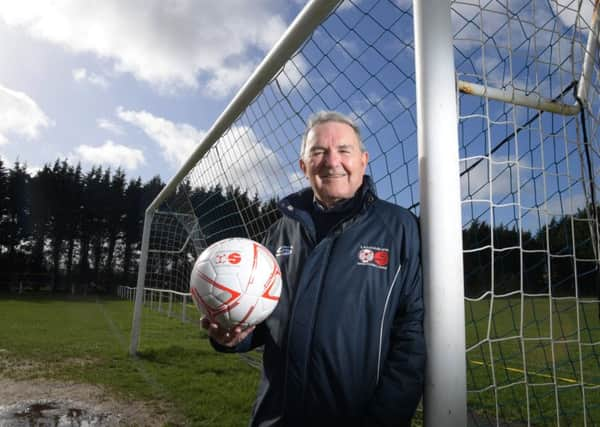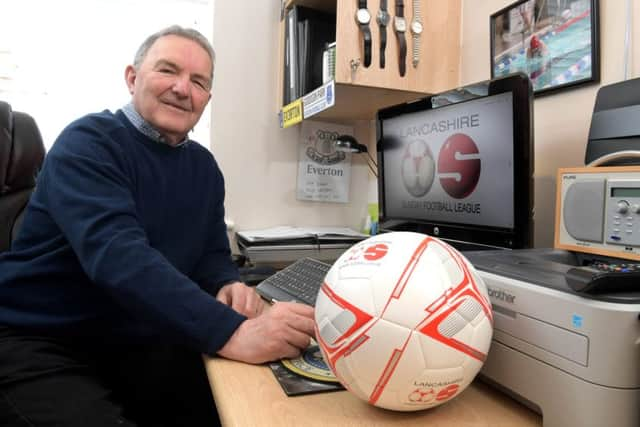Big Interview: Lancashire Sunday League’s retiring chairman Eamonn McNamara


Alifetime of devotion to grassroots football in Preston and the surrounding area is set to come to an end this summer.
After 50 years of being a key admininstrator of ‘the beautiful game’ locally, Eamonn McNamara has decided the time is right to stand aside and let someone else take over the reins.
Advertisement
Hide AdAdvertisement
Hide AdFor so long the driving force behind the hugely popular and award-winning Lancashire Sunday League, McNamara – now aged 77 – will retire from his position as chairman at this summer’s Annual General Meeting.


His retirement will signal the end of a long asssociation with the league’s management committee which began in the late 1960s.
And while McNamara is stepping aside from his duties in an official capacity with the Sunday League, he will still retain an advisory role for the foreseeable future.
“What I am doing is retiring, not resigning,” revealed McNamara. “There is a fundamental difference between the two.
Advertisement
Hide AdAdvertisement
Hide Ad“When you resign, you quit your post and then ride off into the sunset and disappear.
“What I’ve decided to do is retire, but it’s been a planned retirement over the past 12 months at least, with my wife Liz and the people who I work with on the league committee.
“It’s been a succession planning – just to make sure all the elements are right within the league.
“I will still be helping out with certain things, but what I did not want to do was still be involved in the day-to-day, running, organising, attending meetings – I’ve been doing that for 50 years.
Advertisement
Hide AdAdvertisement
Hide Ad“This June is the 50th anniversary since I was elected to the league’s management committee and so it was a good time to stand down.”
While many local amateur leagues have disbanded in recent years, the Lancashire Sunday League has certainly bucked the trend. It boasts four adult divisions and three youth divisions and McNamara believes the professional way the league is run is the main reason why it continues to thrive.
“We set a high bar,” said McNamara, who has two sons John and David and stepdaughter Deborah.
“I remember all those years ago at the beginning, it was a question of hoovering up anybody.
Advertisement
Hide AdAdvertisement
Hide Ad“I think at one time we had as many as 90 teams and these were all adults.
“Every park pitch was being used.
“But as times have evolved, we made a conscious decision to go for quality over quantity.”
To get away from the alehouse stereotype which is associated with Sunday league football, McNamara and his fellow committee members began to impose more stringent rules on its clubs.
“We were the first league in Lancashire which made it compulsory to have goal nets,” he said.
Advertisement
Hide AdAdvertisement
Hide Ad“The way we did this was we went out and brought 50 nets and got somebody to sponsor them.
“We then discounted them to the clubs and they went like hot cakes.
“Then the next thing we brought in was the shirts had to have numbers on them.
“Then we made it compulsory that the players’ kits had to be exactly the same.
Advertisement
Hide AdAdvertisement
Hide Ad“A team couldn’t have black shorts, but then have one fella wearing red.
“Everything had to be uniformed. You will never see that in our league on a Sunday where players in one team have different kits.
“Bringing in all these rules was all about selling it to the clubs and saying, ‘This is your league and we don’t want anybody direspecting us’.
“The clubs really bought into it.”
Other policies the league is renowned for is the banning of using pub names for teams and ensuring that every club has its own management structure in place.
Advertisement
Hide AdAdvertisement
Hide AdIt was around a decade ago that McNamara suggested the idea of the league having its own website.
After a couple of years of trying to get the project off the ground, he came across a man called Chris Gore, who was a player in the league.
As luck would have it Gore at the time was in the final year of doing a masters degree in website design.
These days Gore – along with his two brothers Andrew and Steven and friend Peter Adams – runs a successful company on Preston Docks called Soccer Manager Ltd.
Advertisement
Hide AdAdvertisement
Hide AdHowever, he still retains his links with the league and continues to power the website, which attracts a remarkable 8,000 hits eah week.
“The beauty about Chris was he was a player and helped run a club, so he knew what everybody wanted,” said McNamara.
“At 3pm on a Sunday, the website will be populated with that day’s results and even the goalscorers.
“How do they do that? By using these drop down menus.
“It really is marvellous and has helped the league a lot.”
McNamara revealed that he will continue to help populate the website after his retirement.
He has been regular spectator around the local pitches on Sundays over many years, taking team pictures and penning stories for the website.